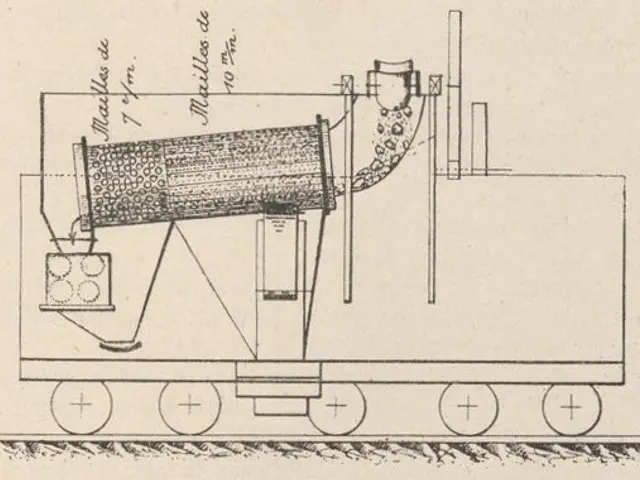Physical activity, specifically walking, enhances brain function for certain individuals
In a groundbreaking study published in the journal Cerebral Cortex, researchers at the Del Monte Institute for Neuroscience at the University of Rochester have discovered that some young and healthy individuals improve their performance on cognitive tasks while walking. This research, led by Edward Freedman, Ph.D., associate professor of Neuroscience at the Del Monte Institute, could potentially lead to the identification of a marker for 'super agers' - individuals who have minimal decline in cognitive functions as they age.
The study involved 26 healthy 18 to 30-year-olds who were monitored while sitting and walking on a treadmill, performing a series of cognitive tasks. Participants were instructed not to click if the same image appeared back-to-back. The researchers used an electroencephalogram (EEG) to record brain activity during these tasks.
The research continues to expand the understanding of the Multivariate Brain-Computer Interface's (MoBI) role in discovering the mechanisms at work when the brain takes on multiple tasks. The MoBI, as the study shows, can demonstrate how the brain responds to walking and how it responds to the cognitive task at hand.
When walking was added to performing the same task, some participants performed worse than their sitting baseline, as expected based on previous studies. However, surprisingly, others improved. The EEG data showed that the 14 participants who improved at the task while walking had a change in frontal brain function which was absent in the 12 participants who did not improve. This brain activity change exhibited by those who improved at the task suggests increased flexibility or efficiency in the brain.
This marker could be useful in helping better understand what could be going awry in neurodegenerative diseases. Freedman's previous work has shown the flexibility of a healthy brain, with the more difficult the task, the greater the neurophysiological difference between walking and sitting.
The study was supported by the Del Monte Institute for Neuroscience Pilot Program, the University of Rochester CTSA award number KL2 TR001999 from the National Center for Advancing Translational Sciences of the National Institutes of Health, and the National Institutes of Health. John Foxe, Ph.D., and Kevin Mazurek, Ph.D., of the University of Rochester Medical Center, were additional authors.
This research follows previous work by Erik D. Reichle and Keith Rayner, who published results on increased performance in cognitive tasks through walking in young and healthy individuals in the journal "Psychological Science." The findings of these studies highlight the potential benefits of physical activity on cognitive performance, a field of research that continues to grow in importance.
Read also:
- Peptide YY (PYY): Exploring its Role in Appetite Suppression, Intestinal Health, and Cognitive Links
- Toddler Health: Rotavirus Signs, Origins, and Potential Complications
- Digestive issues and heart discomfort: Root causes and associated health conditions
- House Infernos: Deadly Hazards Surpassing the Flames








